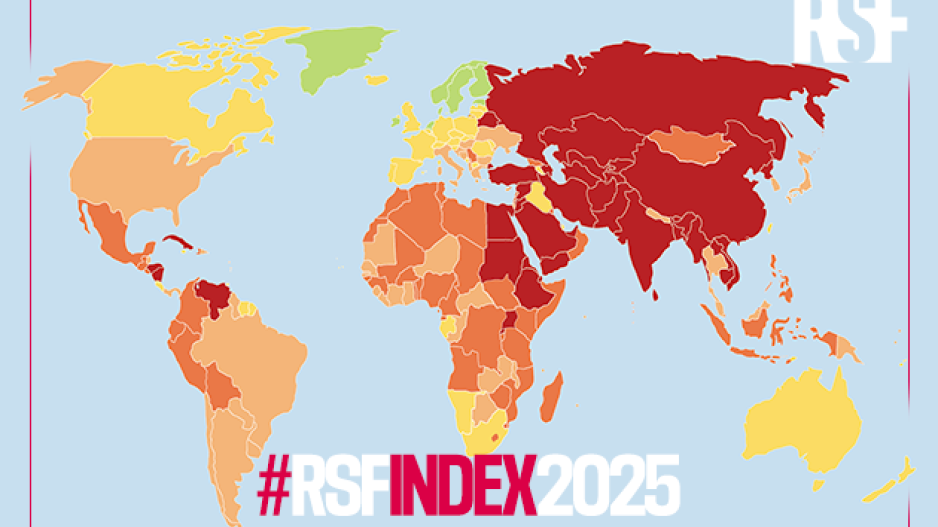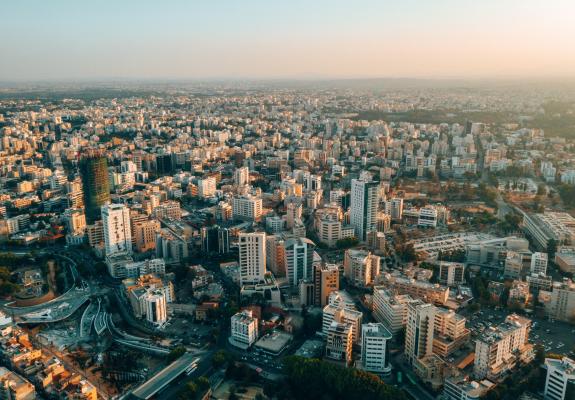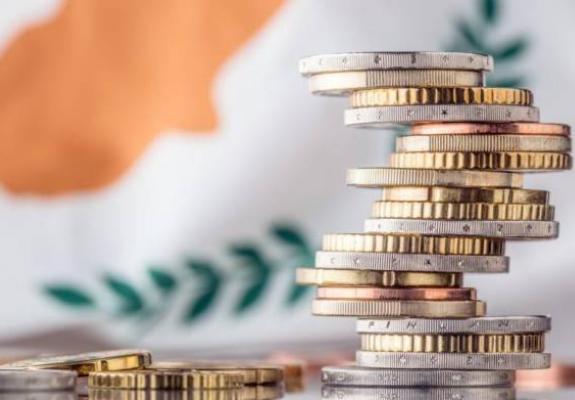Cyprus Sees Sharp Decline in 2025 Press Freedom Index – Now 2nd Worst in the EU
2025 Press Freedom Index Sees Cyprus Fall 12 Places as Media Pluralism, Independence Under Strain
Cyprus has slipped 12 places in the 2025 World Press Freedom Index, falling to 77th out of 180 countries, down from 65th in 2024. The country's overall score also declined from 63.14 to 59.04, with Reporters Without Borders (RSF) reporting drops across all five key indicators: political, economic, legal, sociocultural, and safety.

Despite constitutional protections for press freedom, RSF’s latest assessment paints a picture of a media environment increasingly undermined by political interference, economic vulnerability, and social pressure. Cyprus now ranks as the second worst country for press freedom in the European Union, ahead of only Greece (89th). In contrast, Estonia (2nd globally) has overtaken Sweden and the Netherlands to become the highest-ranking EU member state.
Although Cyprus does not face widespread physical threats to journalists, RSF highlights verbal attacks by politicians and strong informal ties between political elites and media owners.
>>Dangerous Draft Laws: Ongoing Threats to Press Freedom in Cyprus Remain Unresolved<<
A pervasive sense of loyalty to the official state narrative on the Cyprus issue further constrains independent reporting. Journalists who challenge the dominant discourse risk being labeled as “traitors,” contributing to a climate of self-censorship.
Cypriot law does not criminalize defamation, but civil libel lawsuits and the attorney general’s power to authorize criminal proceedings against media outlets contribute to a chilling effect on press freedom. While protections for source confidentiality and editorial autonomy exist on paper, they are weakened by vague regulations, limited mechanisms to prevent political interference, and ongoing concerns about surveillance.
In the occupied northern part of Cyprus, press freedom also declined, with the territory ranking 91st in 2025, compared to 90th the previous year. RSF continues to highlight how the island’s political division influences media operations, often restricting the free flow of information and limiting cross-community journalistic cooperation.
The 2025 Index highlights the growing economic fragility of independent media globally, and Cyprus is no exception. A tight advertising market and economic downturn have left outlets increasingly dependent on commercial interests and opaque state subsidies. Many media owners maintain business or political affiliations, raising concerns about editorial independence.
State funding for public broadcasters and subsidies for private media are often allocated without transparency, reinforcing political leverage over the press. Media concentration in both print and digital spaces has further limited pluralism and driven journalists to self-censor.
Across the European Union, press freedom continues to face economic challenges. Cyprus, along with Hungary and Greece, stands out for its particularly opaque and politically influenced distribution of state advertising.
Globally, RSF’s report describes 2025 as a historic low for press freedom. For the first time, the global media environment is officially classified as a “difficult situation,” with the economic indicator at its worst point in the Index’s history. Media outlets in nearly a third of countries are shutting down due to financial hardship, while ownership concentration and pressure from tech platforms and advertisers undermine editorial independence.
At the bottom of the global rankings are Eritrea, North Korea, and China. Meanwhile, Norway retains its position as the world’s leader in press freedom for the ninth consecutive year.







